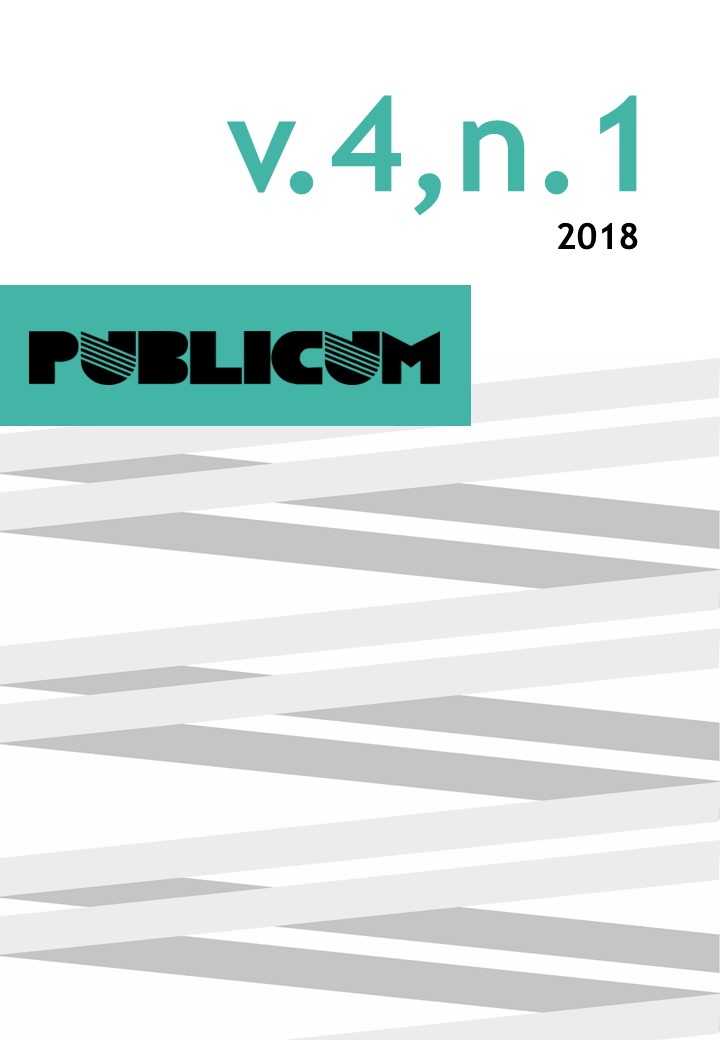O Sistema SACI-Adm e o papel da arbitragem na solução de conflitos digitais | The SACI-Adm system and arbitration’s role in the solution of digital conflicts
DOI:
https://doi.org/10.12957/publicum.2018.34133Palavras-chave:
Domain names, Alternate method for dispute resolution, Dispute Resolution of internet domain names.Resumo
A meta deste trabalho pauta-se na abordagem histórica da gênese da Internet até a sua consagração, analisando de forma mais detida os nomes de domínios, sua estruturação, sua natureza jurídica e a proteção que lhe é conferida por força de sua distintividade. Além disso, o trabalho propõe-se a analisar os tipos de conflitos envolvendo os nomes de domínios registrados e a possibilidade de utilização da heterocomposição para solução desses conflitos, notadamente a arbitragem. Tendo o estudo focado especialmente nos nomes de domínios registrados no Brasil, abordar-se-á, ao analisar os meios alternativos para solução de conflitos para nomes de domínios existentes, o SACI - Sistema Administrativo de Conflitos de Internet, examinando não só as regras instituídas para esse Sistema, mas também alguns dos procedimentos já submetidos a tal sistemática, delineando suas vantagens para a desjudicialização e seus novos desafios.Downloads
Publicado
Como Citar
Edição
Seção
Licença
O autor do trabalho declara conhecer e concordar com as regras a seguir:
1) Realizou o trabalho apresentado à revista, sendo inteiramente responsável pelas ideias e conceitos nele emitidos, que não correspondem, necessariamente, ao ponto de vista dos Editores de Publicum.
2) Obedeceu, na realização do trabalho, os princípios éticos aludidos na política de avaliação da revista[RDN1] .
3) Assume a autoria e a responsabilidade pela obra, declarando que ela não infringe quaisquer direitos de propriedade intelectual de terceiros.
4) Responsabiliza-se, integralmente, por danos de natureza moral ou patrimonial que a veiculação da obra venha a gerar a terceiros.
5) Cede à revista os direitos de reprodução, edição e primeira publicação do trabalho em qualquer meio midiático, em particular sob forma digital, em arquivo eletrônico online na internet.
6) Confere aos Editores o direito de modificar o texto apresentado, sem prejuízo de seu conteúdo, quando necessário para uniformizar a apresentação dos trabalhos e para atender as normas de edição próprias da revista.
7) Concorda com a forma final do trabalho aprovada pela revista.
8) Autoriza a divulgação do trabalho nos canais de comunicação da Faculdade de Direito da UERJ.
9) Concorda com a reprodução de pequenos trechos do trabalho em outras publicações da UERJ.
10) Reconhece que, pela cessão e autorizações acima referidas, não receberá remuneração sob qualquer modalidade, tendo estas o caráter de colaboração científica.
11) Tem ciência de que a publicação do trabalho poderá ser recusada caso não considerada conveniente, por qualquer motivo que seja, sendo que tal recusa não gera responsabilidade e/ou ônus de espécie alguma à revista ou UERJ.
[RDN1]Ver COPE.

Publicum está licenciado com uma Licença Creative Commons Atribuição-NãoComercial 4.0 Internacional.

